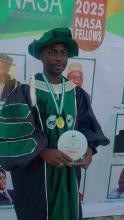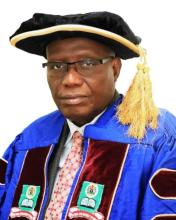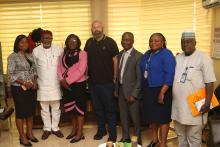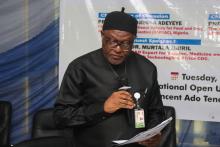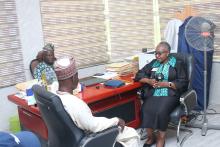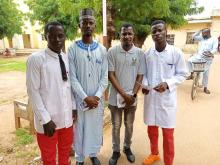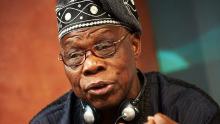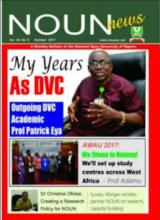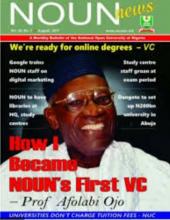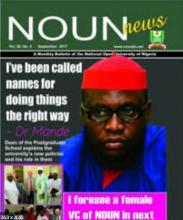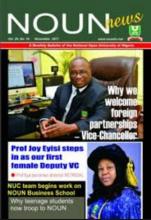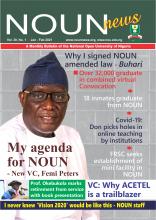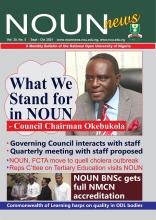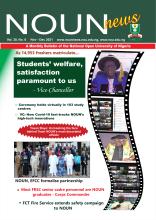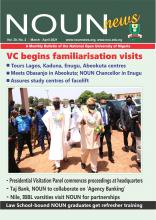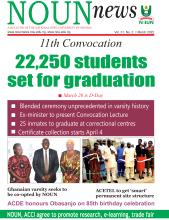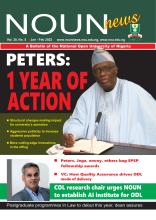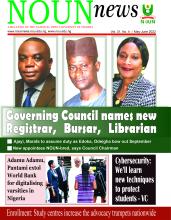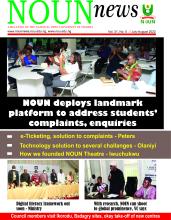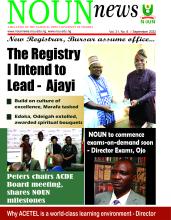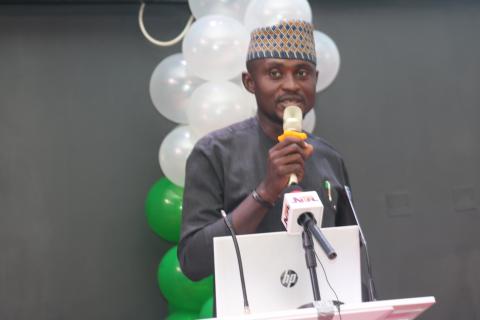
Over 4.9 billion people now access the internet globally, generating and consuming 2.5 quadrillion bytes of data daily and this poses a danger to containing misinformation, disinformation, and mal-information, a university tutor, Dr. Suemo Jacob, has said.
Jacob, who is the Head of the Department of Mass Communication at Nile University of Nigeria, Abuja, said the danger of the trio is obvious in today’s media environment, particularly in shaping public opinion and influencing democracy.
He stated this on Thursday at the National Open University of Nigeria (NOUN) headquarters, Abuja, during this year’s Global Media and Information Literacy Week workshop.
The one-day workshop was organised by the International Media and Information Literacy Institute (IMILI) in partnership with the Federal Ministry of Information and National Orientation, UNESCO and NOUN with the theme, “New Digital Frontier of Information Media and Information Literacy for Public Interest Information.”
Jacob, who was the guest speaker at the event, stated that social media serves as the primary news source for 74% of adults, and while the democratisation of information has benefits, it also creates significant challenges in distinguishing credible information from falsehoods.
The don further noted the blurring lines between professional journalism and user-generated content, stressing the need for ethical content creation and responsible digital citizenship, citing how unchecked information could disrupt social cohesion, governance, and public health decisions.
He referenced past misinformation crises, such as the Ebola salt-water hoax in Nigeria, to illustrate the real-world impact of misinformation.
While addressing questions from the audience, the speaker urged journalists to cultivate accurate sources of information and provide fact-based reporting, and only editorialise when appropriate, such as through official commentaries.
According to him, “Proper source cultivation helps people engage more effectively, whether they cover physical locations, like the Vice-Chancellor’s office, or sector-based topics like entertainment.”
He added: "We are free to express ourselves, but where that freedom begins to intrude on another’s privacy or dignity, it becomes a legal issue."
The lecturer stressed the relevance of media literacy at lower education levels while advocating the inclusion of media literacy in primary school curricula to combat misinformation.
Earlier in his welcome address, the Vice-Chancellor, NOUN, Professor Olufemi Peters, had highlighted the unique role of the university in fostering digital education, stating that the teaching model is different, with facilitators delivering education electronically, and this reflects the shift towards digital frontiers in information dissemination.
Peters emphasised on responsible information sharing, saying, “The content we disseminate has a profound impact on society, therefore, we must speak to one another with care because we are communicating with fellow human beings.
"This workshop is not just for today; it is for the future, so we must continue to champion responsible media use and become ambassadors of truth in the digital age."
Giving his vote of thanks, the HOD of Mass Communication at NOUN, Dr. Lateef Adelakun, acknowledged the involvement of UNESCO, calling it “one of the driving forces behind this programme.”
He extended appreciation to the Ministry of Information and National Orientation, recognising the ministry's pivotal role in making the event a success.
Adelakun further appreciated the NOUN vice-chancellor, thanking him for being "a wonderful and welcoming host."
- Log in to post comments
- 172 views

